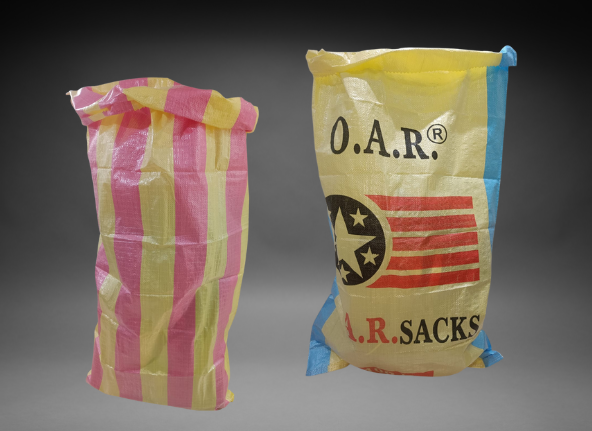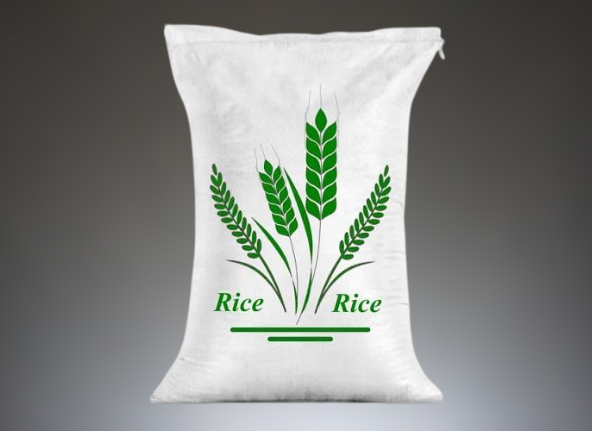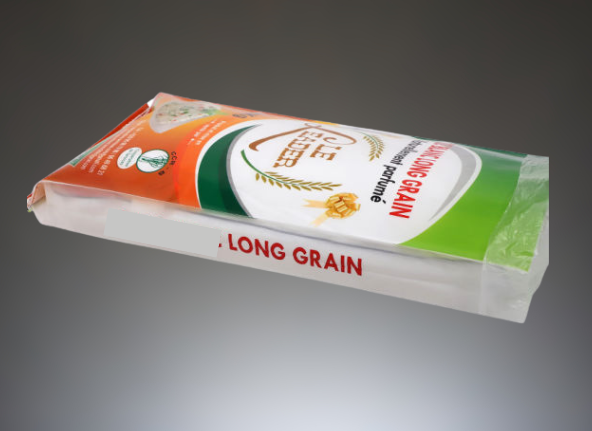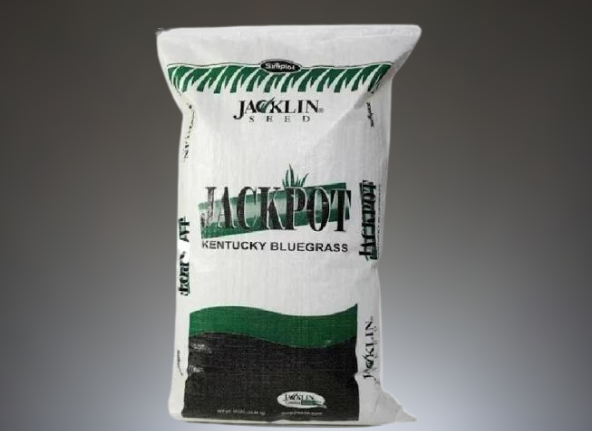What is HDPE woven Bag?
HDPE Woven Bag is a type of fabric made from high-density polyethylene (HDPE) fibers. It is used for various bag-related applications, from shopping to grocery bags, food packaging bags, shipping sacks, and much more. The popularity of HDPE woven Bag is due to its lightweight yet sturdy properties that offer superior value to other kinds of fabrics such as paper or textile fabrics. The manufacturing process involves weaving these high-density polyethylene fibers into fabrics using modern weaving machines and other cutting-edge technologies employed by HDPE bag manufacturers in Chile and its surrounding areas. With its wide range of use cases in the bag manufacturing sector, HDPE woven Bag proves to be an essential material for any manufacturer looking for a cost-effective yet quality product.
High-Density Polyethylene (HDPE) woven Bag is a strong, durable, and lightweight material used for manufacturing various types of bags. The process to make these bags involves weaving a pattern of HDPE threads together to create a mesh-like textured fabric that is ideal for manufacturing reusable and eco-friendly bags. HDPE woven bag manufacturers are commonly used in the bag manufacturing industry due to their strength, reinforcement, and low cost. As the demand for eco-friendly packaging is increasing, so too are the number of HDPE bag manufacturers in Chile as they stand out amongst other bag manufacturers due to their superior quality products at competitive prices.
HDPE Fabric Description
HDPE Woven Bags are a type of fabric used in the manufacture of bags, geotextiles, and other related products. It is manufactured from High-Density Polyethylene (HDPE) resins and has excellent strength characteristics. HDPE Woven Bag also has excellent UV stability, resistance to tearing and abrasion, as well as low thermal shrinkage. It is widely used for bag manufacturing, ranging from large bulk bags to small consumer shopping bags. Additionally, it is also commonly used for the production of HDPE pp woven bags and HDPE bag manufacturers in Chile, Chile for a variety of industries.
HDPE Fabric Specification
This P.P | HDPE woven Bag is divided into two different parameters one is laminated and
the other is Unlaminated but both have the same specification. To check what it includes
you can check below:
| Material: |
PP (Poly Propylene) or HDPE (High-Density Poly Ethylene) |
| Width: |
Circular/Tubular Form: 25 cm to 150 cm (10 inches to 60 inches) / Flat
Form: 50 cm to 300 cm (20 inches to 120 inches) |
| Length: |
As per your requirement |
| Roll Diameter: |
Minimum 300 mm or above as per your requirement |
| GSM: |
35 GSM to 140 GSM and above |
| Lamination: |
12 Micron to 50 Micron and above (10GSM to 45 GSM) |
| Mesh: |
4x4 to 16x16 |
| Denier: |
400 Denier to 1600 Denier |
| U.V. Stabilization: |
If required which is between 200 Hrs to 1600 Hrs |
| Color: |
As per your requirement |
| Printing: |
Upto 6 Colors |
| Elongation: |
As per your requirement |
| Strength: |
As per your requirement |
| Packing: |
As per your requirement |
The above-shared specification is one of the user specifications this keep differing as
per company and requirement but the above-shared specification is one the most commonly
used specification.
Features and Benefits of HDPE Woven Bag
When you hear the word fabric which is one of the fascinating names if I am using with a
woven. But there is a belief that the earliest form of fabric used was coming from
animal skins which were used for both bedding and clothing. But before synthetic fibers
start the used option by industry were: cotton, wool, silk, etc. But since synthetic
fibers came into the picture, they it is ruling in the market. You can check below the
Features and Benefits of these fibers.
Features:
- Wear and Tear resistant
- Excellent weaving quality
- Better flexibility
- Minimum size variation
Benefits:
- Non-toxic/Non-staining
- 100% reusable and durable
- Light in weight with the lowest density
- Breathable or waterproof with a laminated film
- Excellent resistance to stress and high resistance to cracking
Now I am also going to share the P.P | HDPE woven bag manufacturers’ Process and
packaging. I am also going to share a few material combinations which you can check for
your knowledge and ideas.
Importance of woven Bag packaging
Woven Bag is most used and important in packing the bricks and cement used in
constructing buildings. As per check, it has proven that without the use of fabric,
woven packaging won't be possible unless you can find an alternative for this. The
reason the material used in making this matter much important and till now there is no
alternative for this.
P.P | HDPE woven bag manufacturers in Chile, Chile
In the assembling system, our weavers a significant part. A rounded or level texture is
made by winding around the PP/HDPE tapes. During the cycle, the pressure of wrapped
tapes is managed by the heap cell. There is an in-feed framework that controls the speed
of the gulf rollers during winding according to set pressure. Likewise, the texture roll
winder outfitted with a heap cell guarantees that the twisting pressure of the texture
stays uniform in the interim. This is the way we get our end result which is PP HDPE
Woven Bag.
Material Combination in HDPE Woven Bag
The genuine material used to make the texture is PP/HDPE granules. With granules, the
tapes are made and these tapes in the wake of getting wound around the structure the
texture. The development apparatus in our plant guarantees that our clients get
top-quality texture in their sacks. Since this is in view of the computations and
material proportion, we ensure that no quality issues emerge during the cycle.
Find the Material used in HDPE woven Bags.
We are offering a scope of PP Woven packs that are polypropylene (PP) and high-thickness
polyethylene (HDPE) woven sacks and sacks. Made utilizing a quality natural substance,
these PP Woven sacks are of various sizes and determinations to meet the different needs
of the clients. Further, our scope of PP Woven sacks is utilized for the bundling. The
sacks have a sewed base, and open mouth and are properly non-cover. Underneath
referenced is the point-by-point depiction of these various sorts of P.P | HDPE Woven
bags:
- Our essential and ordinary item is PP/HDPE Packs which is woefully quality Item. It
is involved in a wide range of sacks like sugar packs, rice sacks, feet, and so
forth.
- We client unrefined substances of the best quality, bought from organizations like
Dependence and Gail. On the bases of this best-unrefined substance, we are making
textures of good strength. We have 84 weavers item textures and fulfill Client needs
opportune.
- We make PP and HDPE sacks in various sizes (according to the client’s necessity). We
make the cover of the PP and HDPE packs, which is more helpful in composts and
different ventures. Cover sacks help the long durability of the client's material.
Why Choose a HDPE woven Bag?
Producing Plant Nitty Gritty Venture Report, Profile, Strategy, Industry Patterns, Statistical surveying, review, Assembling Interaction, Hardware, Unrefined substances, Plausibility study, Speculation Open doors, Cost, and Income. Woven texture is a material shaped by winding around. It is delivered on a loom and made of many strings woven on a twist and a weft. Woven polypropylene/HDPE packs or on the other hand essentially woven PP/HDPE sacks are viewed as the hardest bundling sacks, generally used to pack materials for grain, processing, and the sugar industry. HDPE/PP arranged strips are turning out to be progressively famous in Chile, Chile and have grabbed the attention of many end clients for their prerequisite pressing materials.
They have become famous by virtue of their inactivity towards synthetic, dampness and,
magnificent opposition towards decaying and parasite assault. They are non-harmful.
Lighter in weight and enjoy a bigger number of benefits than customary packs. These
sacks enjoy numerous upper hands over other traditional sacks materials and are very
aggressive in cost. HDPE/PP Woven packs are in a perfect world reasonable for Building
Materials, Concrete, manures, Urea, Potash, plastic, polymers, plastic pellets, and so
on. Food grains: Rice, Wheat, Heartbeats, Tea, Espresso, Beans, Peanuts, Sand, Sugar.
Conclusion:
Today we have a wide range of textures produced using various materials, yet there is
something unique about PP (Polypropylene) and HDPE (High-thickness Polypropylene). PP
and HDPE were initially begun in the UK and presently it is a lot well-known in the
market. As it is the most flexible material utilized in the real sense of everything.
Fabricated by remaining together ethylene atoms (presently you know why it is called
ethylene), PP and HDPE are extremely famous for their clear applications. Being one of
the most adaptable, it is lightweight yet really solid. Notwithstanding highlights like
effect obstruction, toughness, and marketability, it is a recyclable texture material
too. Indeed, even this reused material has the very elements and uniqueness that another
PP or HDPC texture has.




